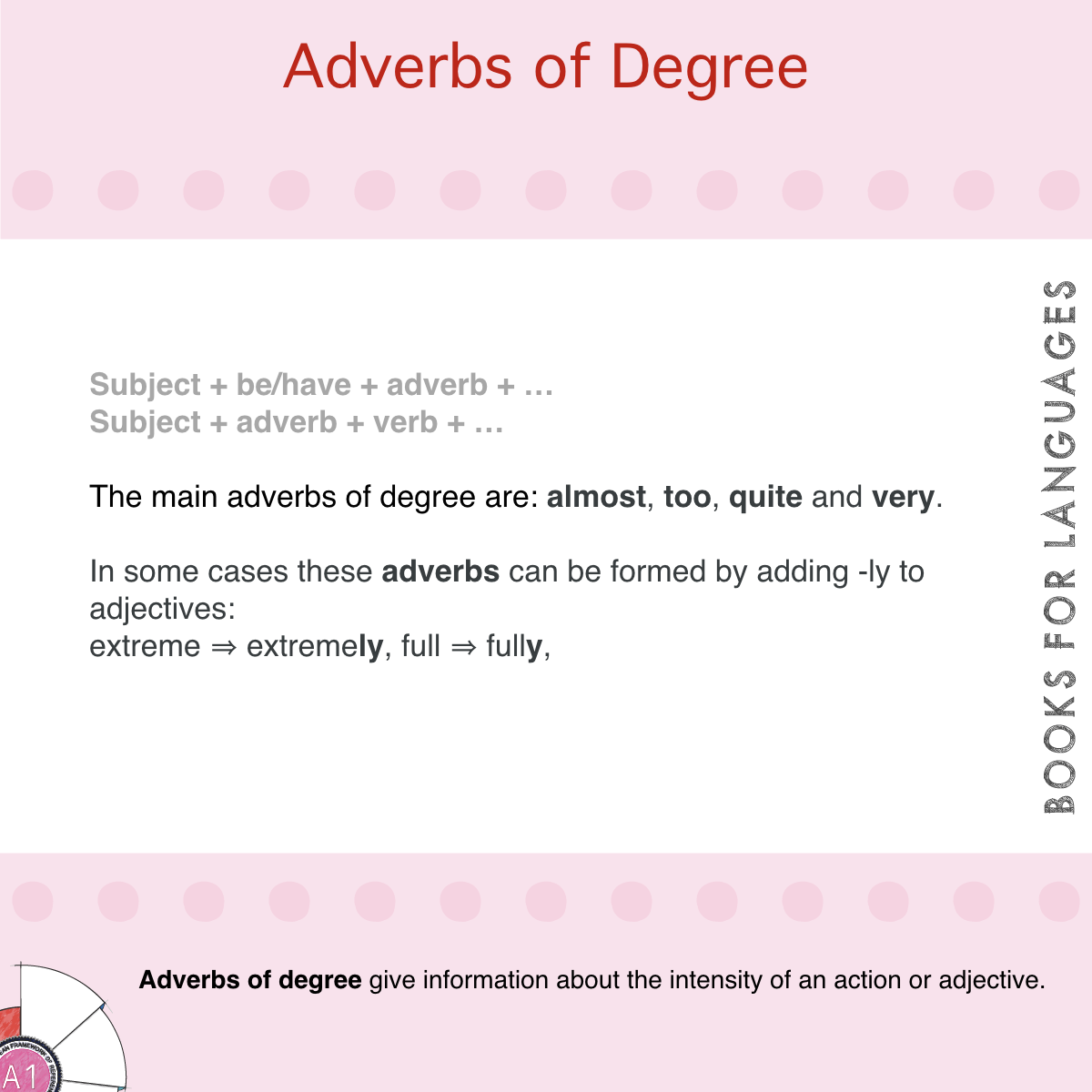
HOW? Suddenly, everything changed.TO WHAT

WHEN? Good moments happen every time you’re around. We’re used to adverbs ending in -ly but note that they sometimes take the form of adjectives (I feel bad).Īn adverb usually answers any of these questions: Where? When? How? To what extent (how much or how long)? What is an Adverb?Īn adverb is a word that modifies a verb (he walks slowly), an adjective (it’s quite dirty), another adverb (she arrived very early), or a whole clause ( Luckily, he survived the fall). All rights reserved.Let’s learn how to define and use an adverb. Online English Courses: Interactive and FunĬopyright © 2010-2023. Stories and Exercises to Practice Grammar.English Short Stories Book and Workbook.You can review basic English word order with this lesson: The order of English words is important if you want to communicate your The fourth sentence has the same meaning as the third sentence, but the third sentence has a stronger emphasis. However, the placement of some adverbs can greatly change the meaning of a sentence. The placement of suddenly does not change the meaning of the sentence. Placing the adverb at the end gives more emphasis to the adverb.) Example: (But different placements emphasize different things. Most adverbs can be placed in any of the positions inĪ sentence without changing the meaning of the sentence.



 0 kommentar(er)
0 kommentar(er)
